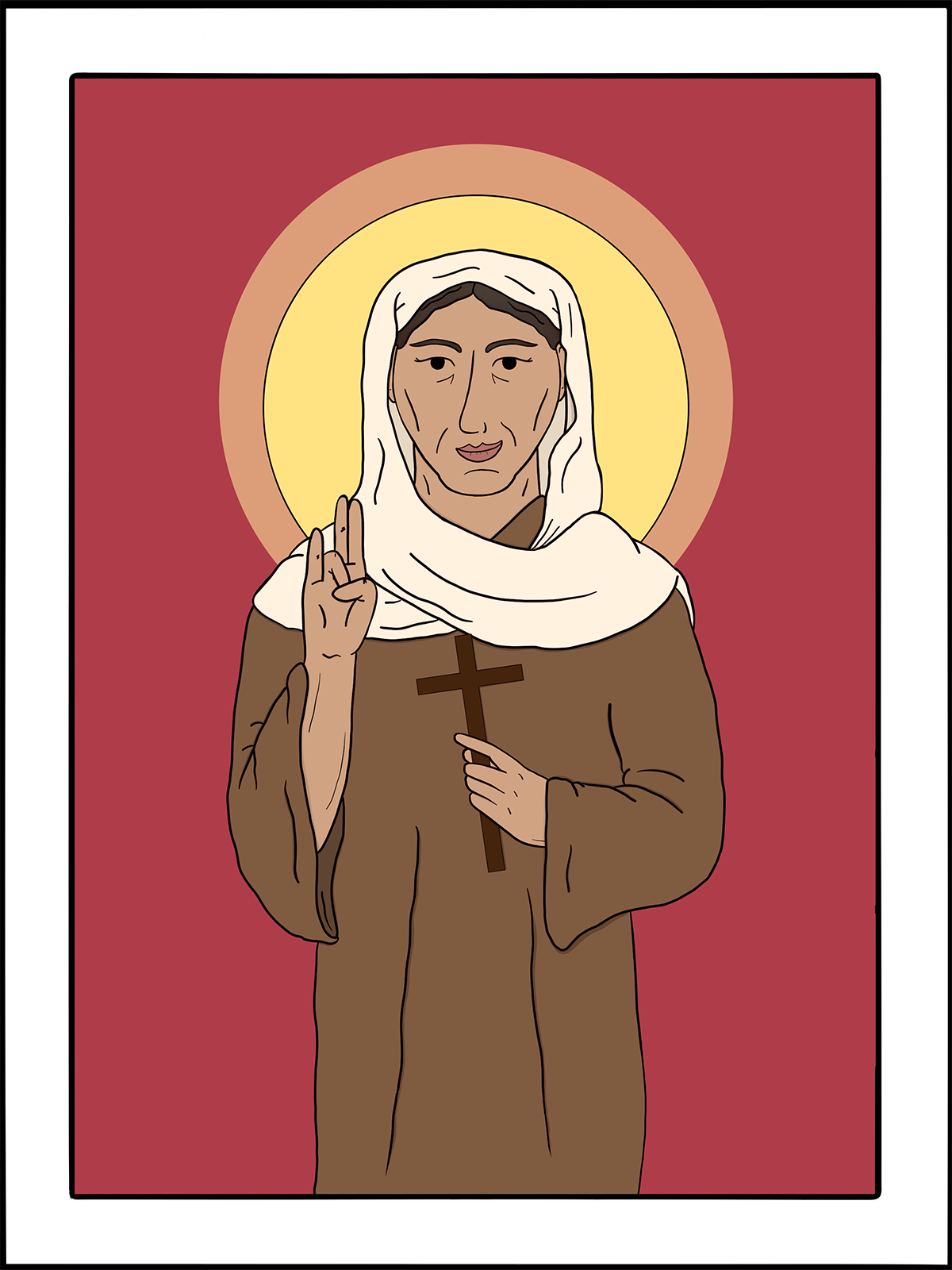
January 31
Marcella of Rome
Monastic and Scholar, 410
art by Rev. Kirsten Kohr of Uhrichsville, Ohio O God, who satisfies the longing soul and fills the hungry with good things: Grant that we, like your servant Marcella, may hunger and thirst after you more than the vain pomp and glory of the world and delight in your word more than all manner of riches. Through Jesus Christ our Lord, who lives and reigns with you and the Holy Spirit, one God, now and forever. Amen.
“How much virtue and ability, how much holiness and purity I found in her,” said Jerome of Marcella, “I am afraid to say, lest I may exceed the bounds of men's belief.” Marcella was born in Rome in 325 to Albina, a noblewoman noted for her piety and learning. When Marcella was a child, her mother invited Athanasius of Alexandria to sojourn in her home during his exile. At his feet, Marcella studied the lives of the holy monastics of the Thebaid, and Athanasius gave to her a copy of his Life of Antony.
After being widowed as a young woman, Marcella devoted herself to the asceticism of Antony. Trading her costly array for a simple brown dress, she made her home into a house of prayer and refuge. Her example inspired other women to form a community, sometimes called the Brown Dress Society, that was devoted to chastity, poverty, fasting, prayer, studying the scriptures, and serving the poor and needy. Together with Paula (September 28), Marcella is one of the mothers of Roman monasticism.
In 382, Pope Damasus invited Jerome to Rome, where he lodged in Marcella’s Aventine Hill estate. During those three years a friendship developed between Marcella, Paula, and Jerome, without which Jerome’s Latin translation of the scriptures (later called the Vulgate) would not have been written. Marcella and Paula were remarkably erudite; Jerome found in them not only friends but colleagues with whom to discuss the challenges of interpreting and translating the scriptures. After the death of Damasus, Jerome, joined by Paula and her daughter Eustochium, left for Jerusalem; although they urged Marcella to join them, she was determined to remain in Rome. She and Jerome corresponded for the remainder of her life. After his departure, scholars came to her to seek her insight on obscure matters in the Greek and Hebrew scriptures.
In 410 the Visigoths invaded Rome. Alaric’s soldiers pillaged Marcella’s home in search of wealth. They scourged the eighty-five-year-old woman, demanding that she surrender her hidden treasures, which she had long since spent in charity. She only pleaded with the soldiers not to harm her protégé Principia. They were both eventually taken to St. Paul’s Church, which had been designated a sanctuary. The following day, Marcella died in Principia’s arms.
Excerpted directly from “Lesser Feasts and Fasts 2022,” p. 66-67.
Lessons and Psalm1 Kings 17:8-16
Psalm 124
Mark 12:41-44
Preface of a Saint (2)

